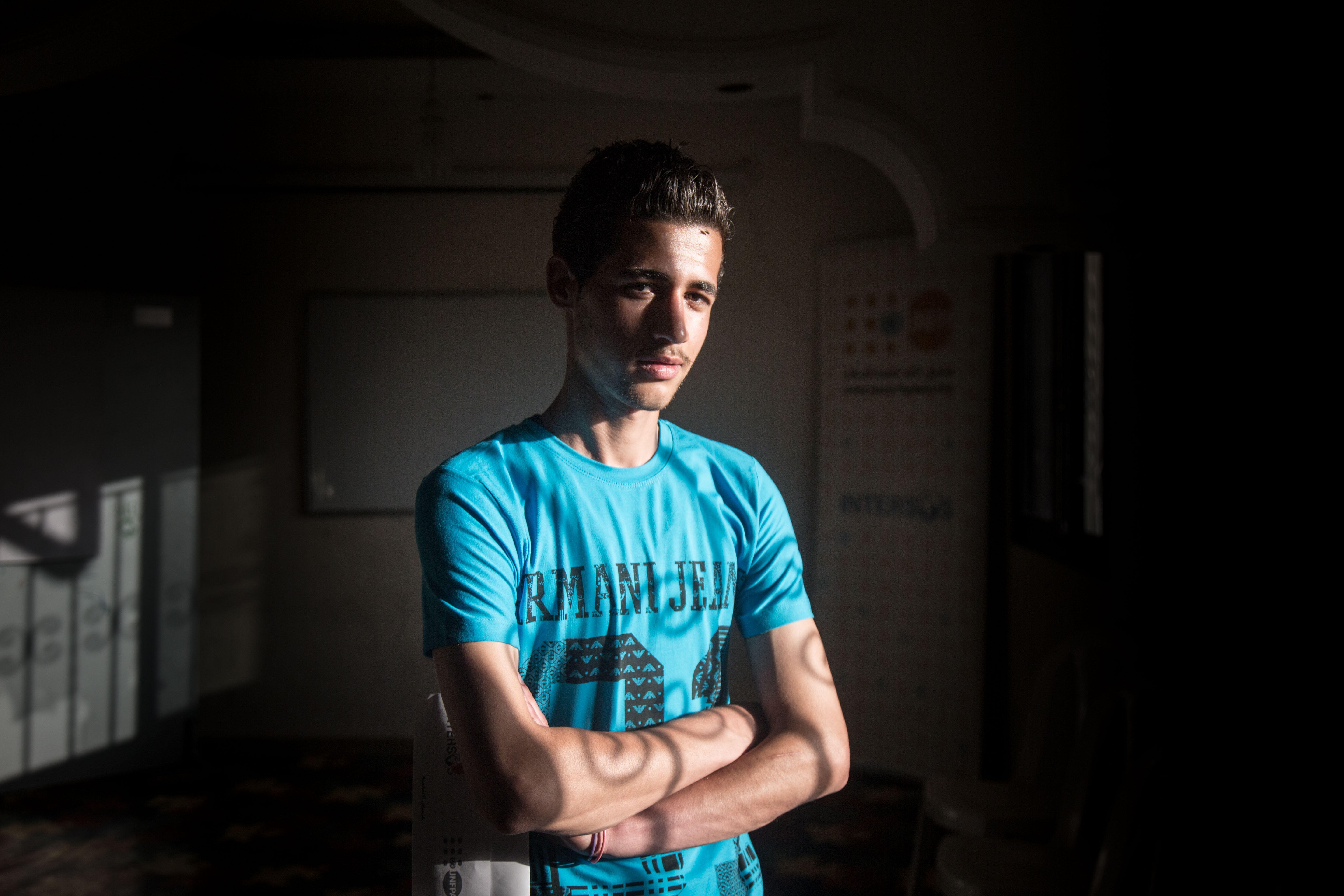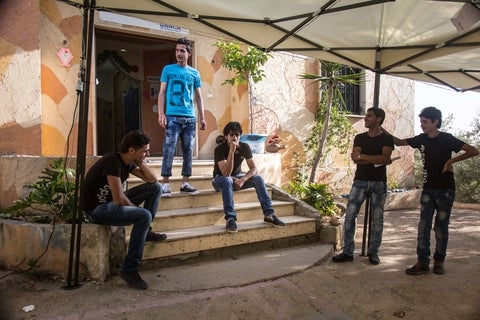When Mohamad Hasan first came into a group awareness session organized by INTERSOS and UNFPA in the scenic Chouf area in Lebanon, little did he know that he was going to make a life-changing decision within a few weeks. The 18-year old Syrian was all set to get engage to his loved one shortly, he was impatient for the holy month of Ramadan to be over as the engagement was planned to take place during the Eid el Fitr festivities.
A few weeks into the sessions though, and particularly after he received detailed information about the consequences of early marriage and early and repeated pregnancies on the health of young women, Mohamad started to think about his situation.
“I suddenly realized that getting married came with a price tag: I would be the primary caretaker and should provide for the house,” said Mohamad with an amused smile.
“And when they told me about what can happen to my fiancée (to be) if she got pregnant too early I just thought why should we even risk this? I love her and do not want her to suffer in any way.”
Nearly a year after into joining INTERSOS-UNFPA programme for youth, Mohamad is clear-headed and convinced that he should wait until he is financially capable of being responsible for a household before he gets married. He is also convinced that, for the sake of his fiancée’s health and well-being, she should not have to face the risks that can arise from early pregnancy. “Now that I know how bad early marriage and pregnancy are for a woman’s health, how can I contribute to endangering my fiancée’s life? How can a child raise a child? I want to apply what I learnt, we will wait”, he says.
Of the nearly five million people who have fled Syria because of the conflict, more than a million are registered as refugees in Lebanon, according to UNHCR. They live in over 1,700 communities and locations across the country, often sharing small basic lodgings with other refugee families in overcrowded conditions. UNFPA works within host communities to respond to needs mostly in the fields of sexual and reproductive health and gender-based violence, and jointly runs programmes with NGOs in Lebanon to help empower youth through activities that build their awareness on issues essential to youth well-being such as gender based violence, risks of early marriage, sexual reproductive health, and gender equality.
UNFPA and INTERSOS have been targeting youth since 2015 using the Peer to Peer techniques where young people are trained on reaching out and talking to fellow young people, raising their awareness about issues of health in general and reproductive health in particular, gender-based violence through a life skills approach. Three groups of young men and women around the area of Mount Lebanon are actively engaging with youth in their age and community on these issues, using a safe space especially set-up for these young boys and girls to meet, acquire, and transfer life skills and specific knowledge and capacities among each other. To date, the group of Youth Peers like Mohamad has been able to reach out and engage with over 1,300 young men and women in Mount Lebanon.




